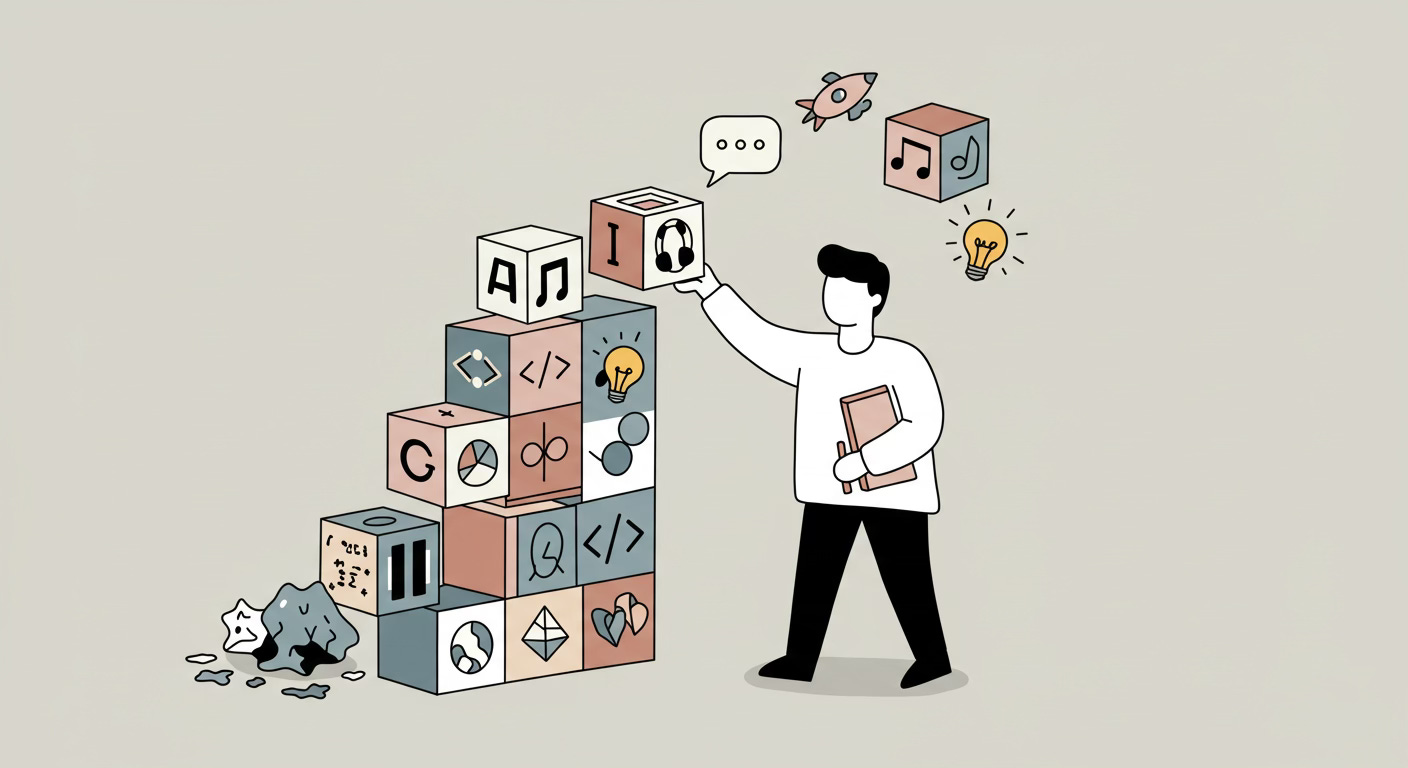Improvising careers 🛠️ Thrive in jobs that don’t exist... yet
What you can steal from a career shape-shifter
At every big event this year — AI, quantum, fusion, sustainability — I kept running into Christopher Bishop. Sometimes on stage, sometimes in the crowd, always ahead of the curve. Chris stands out because reinvention is his default setting.
Chris has shifted careers more times than most people update their phones. Musician, techie, strategist, coach, writer, speaker, author: each shift a conscious jump, not just luck. He’s mastered adapting on purpose, riding every technological shift instead of being left behind.
His book, Improvising Careers: Succeed at jobs that don’t exist yet, explains how he navigated every major technology wave for five decades, always finding a way to stay relevant.

Adapting is a survival skill now. It doesn’t matter if you’re a founder or on payroll: your career only moves forward if you keep changing with it. Stand still, and the world moves past you.
I’ve lived this. Monopoly power and enshittification wiped out my digital publishing ventures. Millennial Masters exists because I refused to fade away. Surviving in a market like this means staying sharp and learning faster than the platforms can change the rules.
AI is tearing up the old playbook for work and business. That’s why I asked Chris to share his story for this special Booksmart feature. His lessons on adapting have never been more useful. 👇🏻
— Millennial Masters is sponsored by Jolt ⚡️ Reliable hosting for modern builders
Chase the maelstrom. Find the chaos. Go for the mayhem.
This philosophy has served me well during my own nonlinear multimodal career path.
Let me explain…
In 1985 in New York, music became data. And it ushered in an entirely new approach to the music business. While I had been busy as a freelance bass player living in Manhattan for almost ten years, I suddenly found myself basically unemployed overnight.
The reason? The emergence of digital samplers and sequencers. Software could now be used to compose and arrange music. Musical Instrument Digital Interface (MIDI) allowed various devices to connect to each other.
A once-thriving session scene exploiting numerous state-of-the-art recording studios in Midtown Manhattan had provided work for many talented musicians, composers, and arrangers. Now, one person could roll in a rack full of gear and play all the parts.
And it sounded okay! Good enough anyway. So, after scratching my head, feeling a bit bewildered and doing much soul searching, I realised that this was how the world was going to be making music now.
I dug out my chequebook, hiked over to my local computer store and bought a MacPlus. I went to Manny’s Music on 48th Street and purchased a floppy disk with composing software called MasterTracksPro.
After many, many hours, I figured out how to manipulate music as information. How to slide the snare drum back a few clock ticks to make the groove feel a bit more relaxed. How to move the bass line a bit in front of the beat to give a track a sense of urgency.
This was a major tech-driven transformation that I lived through and learned to adapt to. Needless to say, this skill led to me later teaching myself to be a web producer after the World Wide Web appeared, which eventually led me to get hired into Corporate Internet Programs at IBM, where I worked for 15 years.
Landing at Big Blue was driven by this transformation in the music business. Using this new technology, I leveraged what I knew about the “old way” of composing and arranging and then acquired the skills required to continue to do it, but on a computer.
Another point worth making is that the transformation of the music business, as in any other tech-driven business, created a whole new set of adjacent businesses. Companies to make and service the computers, coders to write the software. The constant improvements to both the hardware and the software that were required. Fixing bugs and adding new features. Not to mention the market for large rolling racks to hold the gear, someone to manufacture floppy disks, design mouse pads, and build modems.
The lesson for entrepreneurs and nonlinear workers is that all new businesses and careers driven by innovative technologies spawn a whole raft of ancillary and adjacent businesses — a key perspective to keep in mind.
Will you have a big idea that could serve a global addressable market? Think of the impact of Google Search in its early days. Or will you be making cool cases for iPhones? Either way, there are always numerous opportunities to be creative and be remunerated.
How to stay ahead when tech rewrites the rules
1️⃣ Tech eats every industry
Tech innovation has driven economic and cultural transformation for hundreds of years. Today’s technologies include robotics, self-driving vehicles, additive manufacturing, the space economy, crypto assets, biotech and — my personal favourite — quantum information science. It will never change. Understand and embrace this fact. Use it to your advantage.
2️⃣ Your network is your rocket fuel
Always cultivate relationships with people who are successful. This may sound crass, but it is a key principle of my overall philosophy. If the world has recognised their talents and rewarded them with success, those are the people you need to align with.
3️⃣ Gut check beats job title
When contemplating a career change or starting a company, go with your instincts. Don’t ever be afraid to admit that you don’t feel fulfilled in your current role. Always be ready to move to your next one. Your future self will thank you, believe me!
4️⃣ Know your gaps then close them
Abilities acquired in school, in the workforce, at camp, volunteering, and in any number of settings, both formal and informal, are all valuable. However, there will always be a gap. Keep this in mind when making your career shifts or contemplating a start-up. Figure out what skills you can leverage and what you need to learn. Find sources and acquire them.
5️⃣ Be the product people buy
This applies to both a personal value proposition and a start-up. Companies don’t hire people based on looks, connections, hairstyle, or even education these days. Investors don’t give funds to a new company unless they are addressing a gap in the current portfolio of available solutions. It’s just that simple. I got hired at IBM because I knew how to produce websites, not because I played bass with Chuck Berry.
Chris digs deeper into these lessons in his book, Improvising Careers: Succeed at jobs that don’t exist yet. If you want a practical, original playbook for adapting to whatever comes next, no matter what field you’re in, it’s worth a read. 📖 Get it here.
Survive, thrive, and outlast the next disruption with Millennial Masters:










Brilliantly told and deeply relevant. Chris’s journey is a masterclass in purposeful reinvention—packed with lessons for anyone navigating today’s nonlinear, tech-driven careers. Adapting isn’t optional anymore—it’s the strategy.
I find this very relevant. Timeless advice in an era where everything is poised to be shaken up yet again.